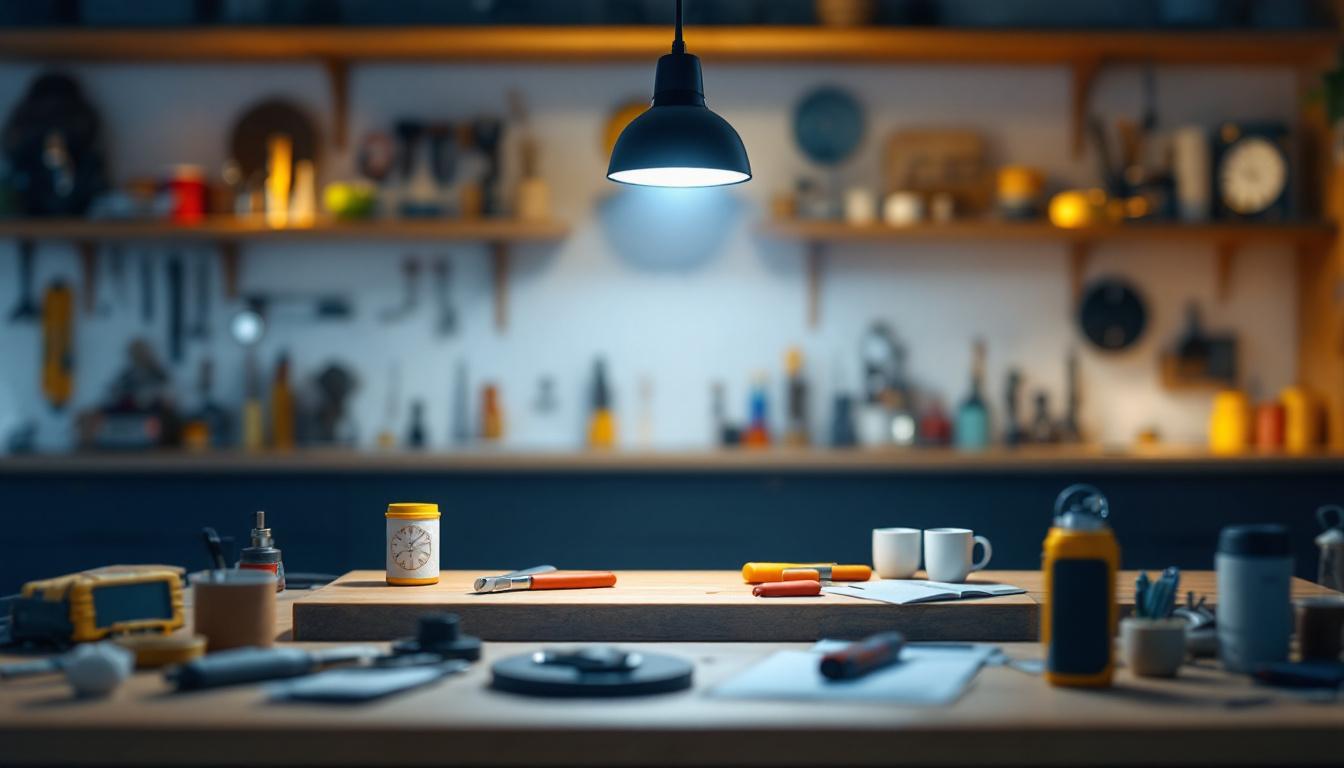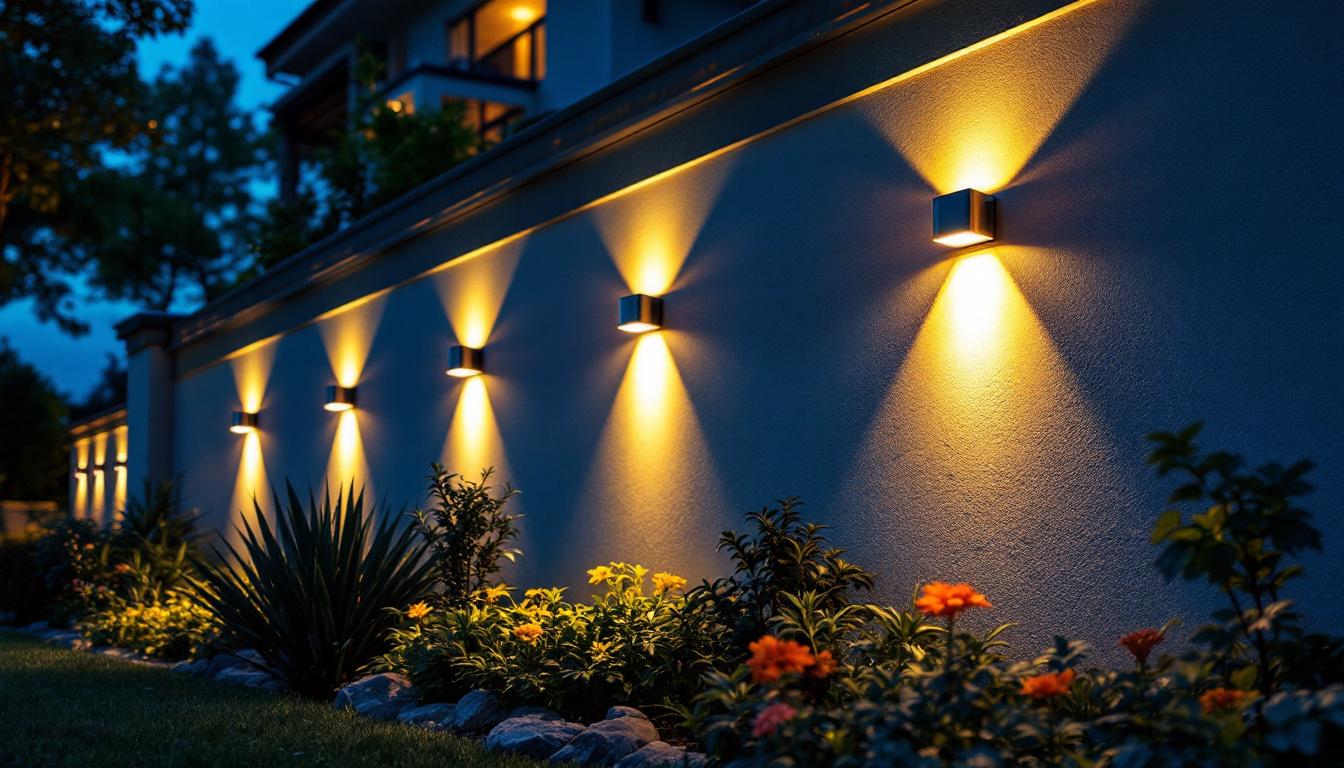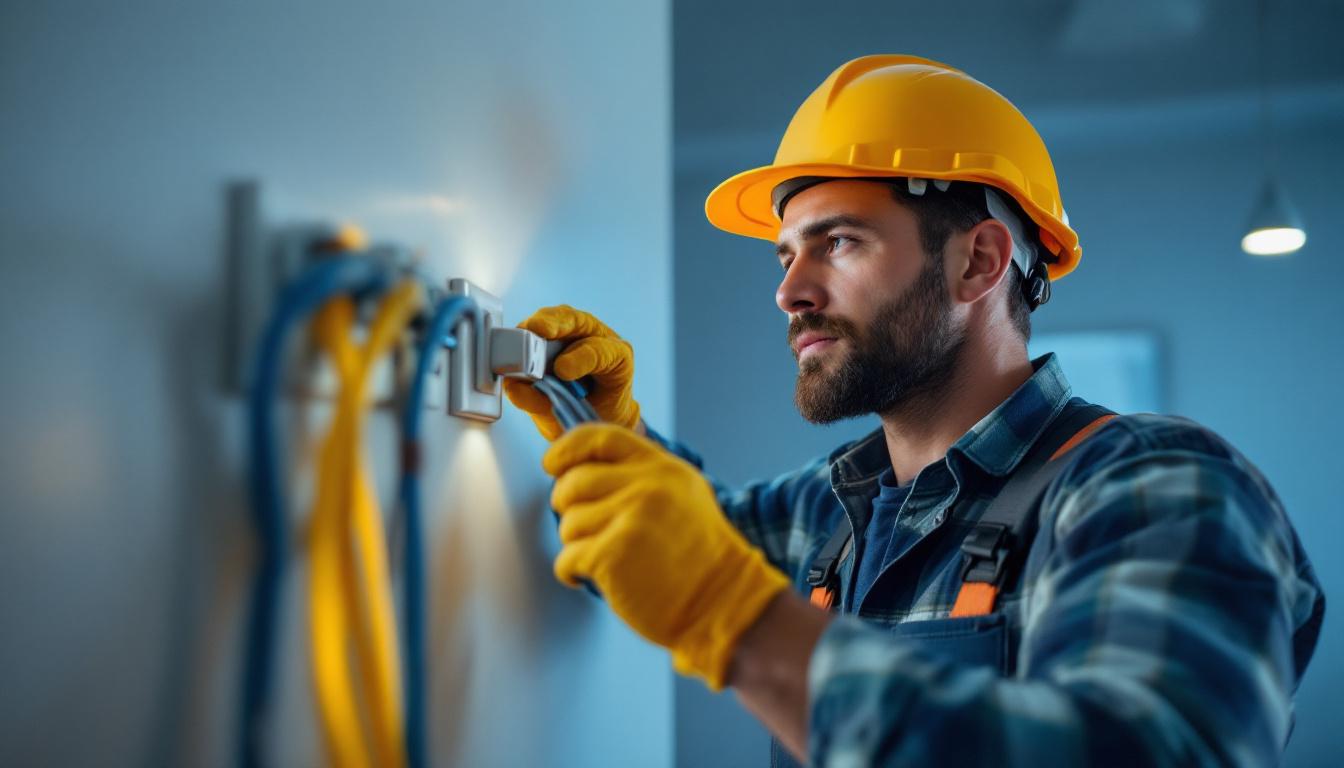
The role of shop lights in modern lighting solutions has evolved significantly, reflecting advancements in technology and changes in consumer needs. As a lighting contractor, understanding the nuances of shop lights can enhance your ability to provide effective solutions for various environments, from garages to commercial spaces. This article delves into the best shop light options available today, exploring their features, benefits, and applications.
Shop lights are essential fixtures designed to illuminate workspaces effectively. They are commonly used in garages, workshops, and industrial settings. The primary purpose of these lights is to provide bright, focused illumination that enhances visibility and safety in areas where precision and attention to detail are crucial.
Traditionally, shop lights utilized fluorescent bulbs, but the industry has seen a shift towards LED technology. This transition is not only due to the energy efficiency of LEDs but also their longevity and reduced heat output. As a lighting contractor, recognizing these changes can help in recommending the most suitable lighting solutions for your clients.
Modern shop lights come equipped with various features that enhance their functionality. One of the most significant advancements is the integration of LED technology, which offers several advantages over traditional lighting options. LED shop lights are not only energy-efficient but also provide a brighter and more consistent light output.
Additionally, many contemporary shop lights include adjustable brightness settings and color temperature options. These features allow users to customize the lighting according to specific tasks or preferences, making them versatile for different environments. Furthermore, some models come with motion sensors or smart technology integration, enabling automated lighting control that can improve energy savings. This adaptability is particularly beneficial in dynamic workspaces where lighting needs may change throughout the day, ensuring that the right amount of light is always available without unnecessary energy expenditure.
Understanding the various types of shop lights available is crucial for making informed decisions. The most common types include overhead shop lights, portable work lights, and under-cabinet lights. Each type serves different purposes and can be utilized in various settings.
Overhead shop lights are typically mounted on ceilings and provide broad illumination, making them ideal for large workspaces. Portable work lights, on the other hand, are designed for mobility, allowing users to direct light exactly where it is needed. Under-cabinet lights are perfect for smaller spaces, providing focused lighting for tasks such as woodworking or detailed repairs. Moreover, there are specialized shop lights designed for specific applications, such as task lighting for intricate projects or high-bay lights for industrial environments with high ceilings. These variations ensure that every workspace can be tailored to meet the unique demands of the tasks being performed, enhancing both productivity and safety.
The shift towards LED shop lights has been driven by numerous benefits that these fixtures offer. For lighting contractors, advocating for LED solutions can lead to satisfied clients and long-term relationships.
One of the most compelling reasons to choose LED shop lights is their energy efficiency. Compared to traditional fluorescent or incandescent bulbs, LEDs consume significantly less power while producing the same amount of light. This translates to lower electricity bills for users, making LED shop lights an economically sound choice.
Moreover, the reduced energy consumption contributes to a smaller carbon footprint, aligning with the growing emphasis on sustainability in modern construction and renovation projects. As a contractor, promoting energy-efficient solutions can enhance your reputation and appeal to environmentally conscious clients. Additionally, many utility companies offer rebates or incentives for switching to LED lighting, further increasing the financial benefits for both contractors and their clients.
LED shop lights are known for their impressive lifespan, often lasting up to 25,000 hours or more. This longevity reduces the frequency of replacements, resulting in lower maintenance costs for clients. Additionally, LEDs are more resistant to shocks and vibrations, making them suitable for demanding environments where traditional bulbs might fail.
Incorporating durable lighting solutions into your projects not only satisfies client needs but also establishes you as a knowledgeable contractor who values quality and reliability. The robust design of LED fixtures often includes weatherproof and dustproof features, which are especially beneficial for outdoor or industrial settings. This resilience ensures that clients receive a product that not only performs well but also stands the test of time, reducing the hassle of frequent replacements and repairs.
Another significant advantage of LED shop lights is their superior light quality. LEDs provide bright, consistent illumination with a high Color Rendering Index (CRI), which means they accurately represent colors. This is particularly important in workspaces where color differentiation is essential, such as painting, automotive repair, or crafting.
Furthermore, many LED shop lights offer adjustable color temperatures, allowing users to select warm or cool lighting based on their preferences or specific tasks. This flexibility enhances the overall work environment, contributing to increased productivity and comfort. In addition, the instant-on feature of LEDs eliminates the warm-up time associated with some traditional bulbs, ensuring that workspaces are immediately bright and ready for action. This can be particularly advantageous in busy workshops or retail environments where time is of the essence, allowing workers to focus on their tasks without unnecessary delays.
When selecting the best shop light, several factors should be considered to ensure that the chosen solution meets the specific needs of the workspace. Understanding these factors can empower lighting contractors to provide tailored recommendations to their clients.
The size and layout of the workspace play a crucial role in determining the type and number of shop lights needed. Larger areas may require multiple overhead fixtures to ensure even illumination, while smaller spaces might benefit from a single, powerful light source. Additionally, the layout of the workspace, including the presence of obstacles or workstations, should be taken into account to optimize light placement.
For instance, in a garage with high ceilings, high-bay LED lights may be the best choice, whereas a compact workshop may only need a few slimline fixtures. Understanding the unique characteristics of each workspace allows contractors to make informed decisions that enhance functionality and aesthetics.
Different tasks require varying levels of illumination. For instance, detailed work such as electronics repair or intricate woodworking may necessitate brighter, more focused lighting. Conversely, general tasks may only require ambient lighting. Assessing the specific tasks performed in the workspace can guide the selection of shop lights that provide the appropriate level of brightness and focus.
In some cases, adjustable lighting options may be beneficial, allowing users to change the intensity based on their current activities. This adaptability can significantly enhance the overall usability of the space.
Installation and maintenance are critical factors when choosing shop lights. Some fixtures are designed for easy installation, while others may require professional assistance. As a contractor, understanding the installation requirements of different models can help streamline the process and ensure client satisfaction.
Additionally, considering the ease of maintenance is essential. LED shop lights typically require less frequent replacements, but it’s important to assess whether the fixtures are accessible for cleaning or bulb replacement if necessary. Providing clients with solutions that minimize maintenance efforts can enhance their overall experience and trust in your services.
The market is filled with various brands and models of shop lights, each offering unique features and benefits. While specific recommendations may vary based on individual preferences and project requirements, several brands have established themselves as leaders in the industry.
When selecting shop lights, considering the reputation of the brand is essential. Established brands often have a track record of producing high-quality, reliable products. Researching customer reviews and industry ratings can provide valuable insights into the performance and durability of specific models.
Moreover, reputable brands typically offer warranties or guarantees, providing additional assurance to contractors and clients alike. This reliability can be a significant factor in building long-term relationships with clients who value quality and service.
Many modern shop lights come equipped with innovative features that enhance their usability. For instance, some models include integrated motion sensors that automatically turn on when someone enters the workspace, conserving energy when the area is unoccupied.
Smart technology integration is another emerging trend, allowing users to control their lighting remotely via smartphones or smart home systems. These features not only improve convenience but also appeal to tech-savvy clients looking for modern solutions.
As technology continues to advance, the future of shop lighting looks promising. The ongoing development of LED technology, smart lighting solutions, and energy-efficient designs will likely shape the industry for years to come. For lighting contractors, staying informed about these trends is crucial to providing clients with the best possible solutions.
Incorporating modern shop lights into projects not only enhances functionality but also aligns with the growing demand for sustainable and efficient lighting solutions. By understanding the various types, features, and benefits of shop lights, contractors can make informed decisions that meet the diverse needs of their clients.
Ultimately, the best shop light is one that combines quality, efficiency, and adaptability, ensuring that every workspace is well-lit and conducive to productivity. As the landscape of lighting solutions continues to evolve, embracing these changes will position contractors for success in an ever-competitive market.
Ready to elevate your lighting solutions with the best shop lights on the market? Look no further than LumenWholesale, where we specialize in providing contractors with superior, spec-grade lighting products at unbeatable wholesale prices. Our commitment to quality and affordability ensures you have access to the most reliable and high-performance lighting for all your projects. With free shipping on bulk orders, you can trust that you’re getting premium lighting at the best value — without any hidden fees. Don’t compromise on quality or cost; choose LumenWholesale for a seamless blend of excellence and convenience. Discover our extensive selection and take advantage of our wholesale pricing by visiting Wholesale Lighting at the Best Value today.

Discover the essential insights into 4Ft T8 LED lamps with our comprehensive guide tailored for lighting contractors.

Discover the advantages and drawbacks of exterior wall mounted solar lights for lighting contractors.

Discover the frequent pitfalls lighting contractors face with light switch receptacles.

Discover the pros and cons of Motion Switch lighting systems compared to alternative solutions.